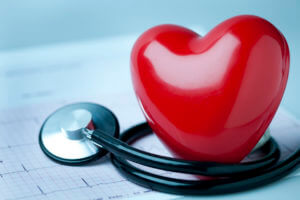
The heart performs the very important function of pumping blood, which keeps oxygen and nutrients circulating throughout your body. Diseases that impair this function could have fatal consequences.
Heart disease consists of many different types of conditions that affect the heart. Depending on the type, heart disease can cause a problem with the heart rhythm, blood vessels, valves, or muscles.
If you’ve been diagnosed with heart disease, don’t be discouraged. Ask your doctor about your treatment options, and take advantage of the state-of-the-art treatments available to you.
Symptoms and Risk Factors
Heart disease can be silent, and it is common for it to be diagnosed by the time the patient experiences arrhythmia, heart attack, stroke, or heart failure. Risk factors include chronic stress, smoking, inactivity, high blood pressure, high cholesterol, and being overweight or obese.
Common Treatments for Heart Disease
In general, treatments for heart disease include medication, aggressive lifestyle changes, and surgery. ACE inhibitors, beta-blockers, and vasodilators are just some of the medications used to manage heart disease.
Eating a heart-healthy diet, exercising regularly, quitting smoking, reducing alcohol intake, and managing stress are all included in the lifestyle changes heart disease patients need to make to improve their condition and prevent fatal outcomes.
If medication and lifestyle changes are not enough, your doctor may recommend surgery. The most common surgeries used to treat heart disease are angioplasty, atherectomy, bypass surgery, endarterectomy, pacemakers, and heart valve surgery.
Angioplasty
In an angioplasty, the doctor uses a stent (a metal mesh tube) to open up a narrowed or blocked coronary artery and improve blood flow to the heart.
Atherectomy
Similarly, an atherectomy involves opening up a blocked artery, but instead of using a stent, the doctor uses a balloon. In bypass surgery, the doctor redirects the flow of blood around a blocked artery with a healthy blood vessel, usually drafted from the leg.
Bypass Surgery
Bypass surgery can address single or multiple artery blockages. Endarterectomy is surgery to remove the blockage in an artery that supplies blood to the brain. During the procedure, the doctor temporarily reroutes blood flow, to be followed by the removal of plaque in the artery.
Pacemaker
For patients with abnormal heart rhythm or arrhythmia, a surgically implanted pacemaker (a small battery-operated device) can help the heartbeat at a normal rate and rhythm. Having a normal heart rhythm matters, because it helps your heart pump blood more efficiently.
Heart Valve Surgery
Heart valve surgery involves either repairing a damaged heart valve (which may involve patching holes, removing, reconnecting, replacing, or reinforcing tissue) or replacing the heart valve. If the heart valve cannot be repaired, it can be replaced. The goal of surgery is to ensure blood is flowing in the right direction.
Heart Disease Treatment in West Orange, New Jersey
We are proud to offer superior primary care and specialty care services at Hudson MD Group for patients with cardiovascular conditions. Our health care providers can identify the type of heart condition you have and recommend the appropriate treatment that will give you the best outcomes.
Hudson MD Group is a multi-specialty group that can provide all your medical needs. To schedule an appointment with us, call (973) 705-4914, or send us a message using our online form.


